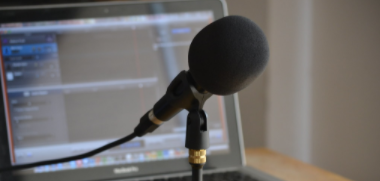
This role has a moderate level of AI exposure. AI can enhance efficiency for some tasks, but this job still relies on human skills and decision-making.
Explore all careersAn Audio Engineer ensures high-quality sound for recordings, mixing audio and adding effects while collaborating with the production team.
Get qualified to work as an Audio Engineer with a course recognised across Australia. Speak to a training provider to learn more.

In Australia, a full time Audio Engineer generally earns $1,800 per week ($93,600 annual salary) before tax. This is a median figure for full-time employees and should be considered a guide only. As you gain more experience you can expect a potentially higher salary than people who are new to the industry.
 Courses.com.au Team
Courses.com.au Team
Audio Engineers have seen moderate growth in employment numbers over the last five years. There are currently 3,000 people working in this job role in Australia. Audio Engineers may find work in larger cities and towns where productions are based.
Source: Australian Government Labour Market Insights
 Courses.com.au Team
Courses.com.au Team
If you’re planning to become an Audio Engineer consider enrolling in a Diploma of Music Industry. This qualification will help you develop techniques for composing, arranging, recording, mixing and performing music. You could also enrol in an Advanced Diploma of Music Industry or a Certificate IV in Music Industry.
 Courses.com.au Team
Courses.com.au Team
Browse occupations related to Audio Engineer



If you are looking to advance your career in the music industry, exploring Audio Engineer courses in Sydney is an excellent starting point. Sydney boasts a vibrant music scene, and becoming an audio engineer allows you to dive into a world filled with creativity and technical skill. With two well-structured courses available for learners with prior experience, such as the Diploma of Music (Sound Production) CUA50820 and the Certificate IV in Music (Sound Production) CUA40920, you can acquire the knowledge you need to flourish in this dynamic field.
Several reputable training providers, including TAFE NSW, offer these Audio Engineer courses in Sydney, ensuring that you receive high-quality instruction and experience. TAFE NSW is known for its commitment to vocational education, preparing students for real-world challenges in audio engineering. By enrolling in any of these courses, you gain valuable skills that can be applied to various job roles, such as Sound Engineer, Music Producer, or even Audio Visual Technician. These roles play crucial parts in the production and performance of music.
In addition to enhancing your practical abilities, the Audio Engineer courses in Sydney also provide insight into the interconnected realms of music and creative arts. This diverse training prepares you for various fields, including Music and other Creative Arts courses. Understanding these connections can expand your career prospects, making you a sought-after professional capable of bridging gaps between disciplines.
As you embark on your journey to become an audio engineer, you may also want to consider exploring related job roles that might align with your interests. Roles such as Music Manager, Music Therapist, or Musician can complement your training. Each of these paths draws on the expertise gained from audio engineering courses, providing a comprehensive foundation for your career in the industry.
In conclusion, investing in Audio Engineer courses in Sydney is a strategic move for anyone passionate about music and sound production. With solid vocational training from recognised institutions like TAFE NSW, you can embark on a fulfilling career. Whether your goal is to work as a Music Producer or achieve success as a Sound Technician, these courses equip you with the skills necessary to thrive in the music industry.